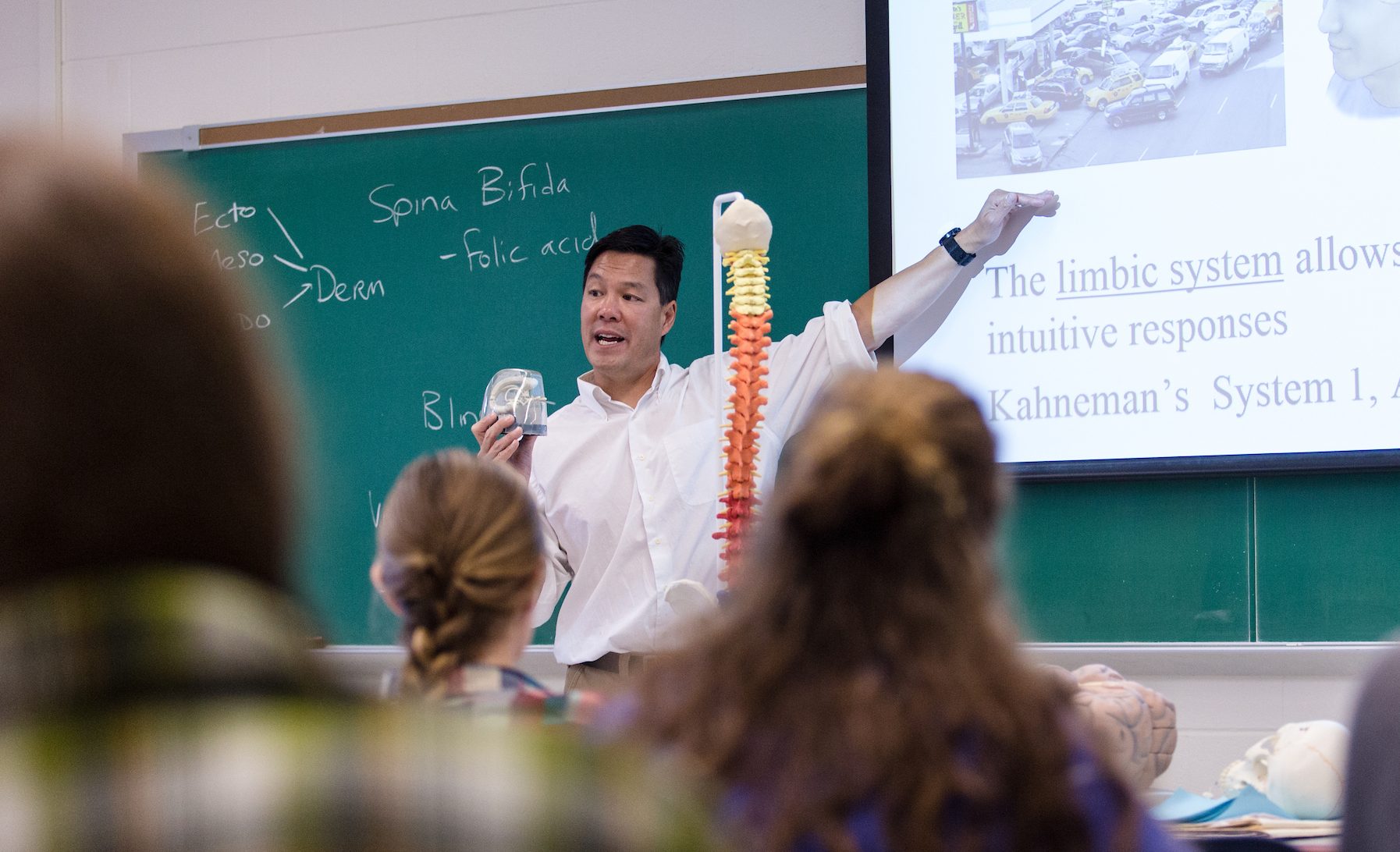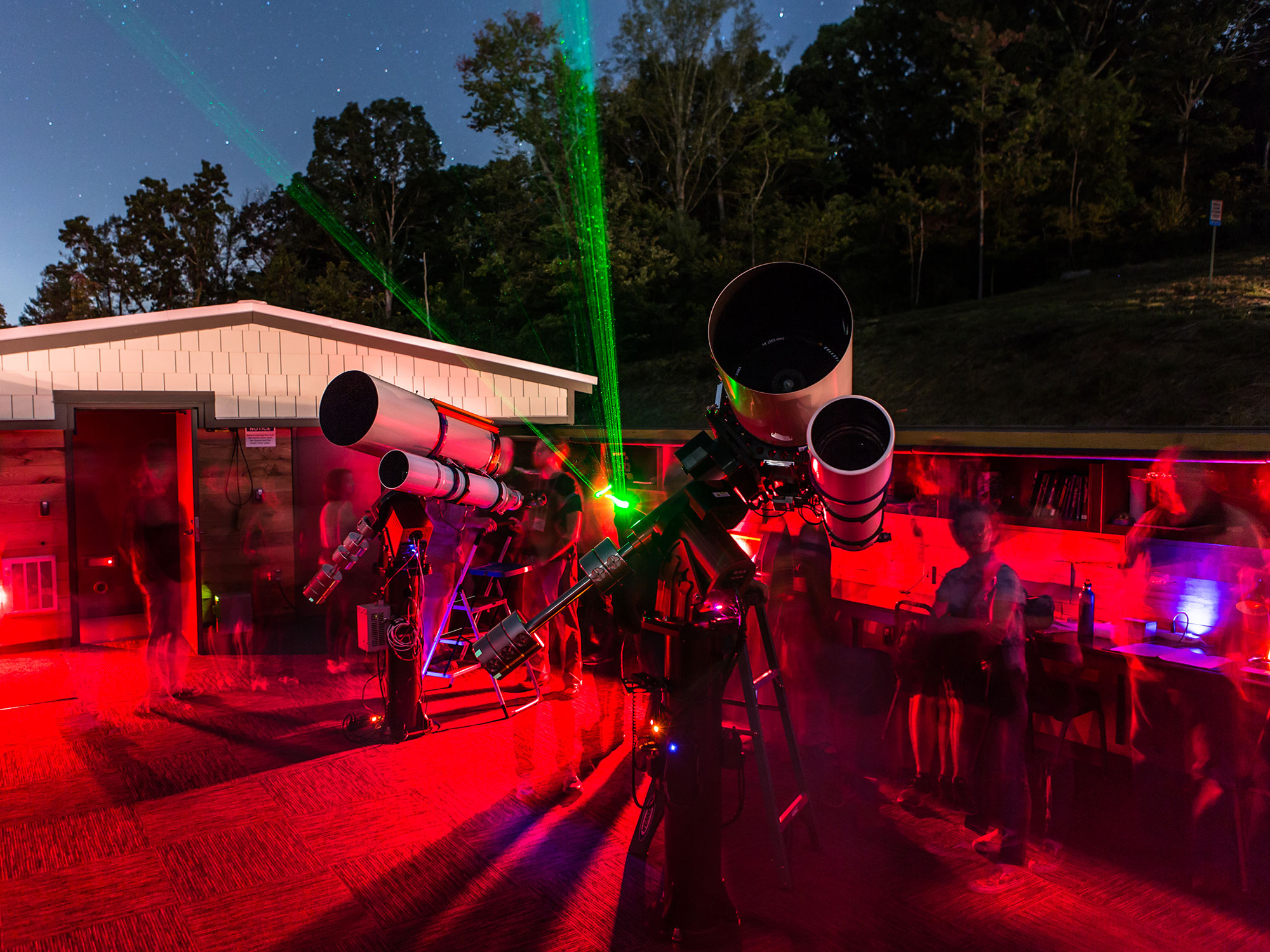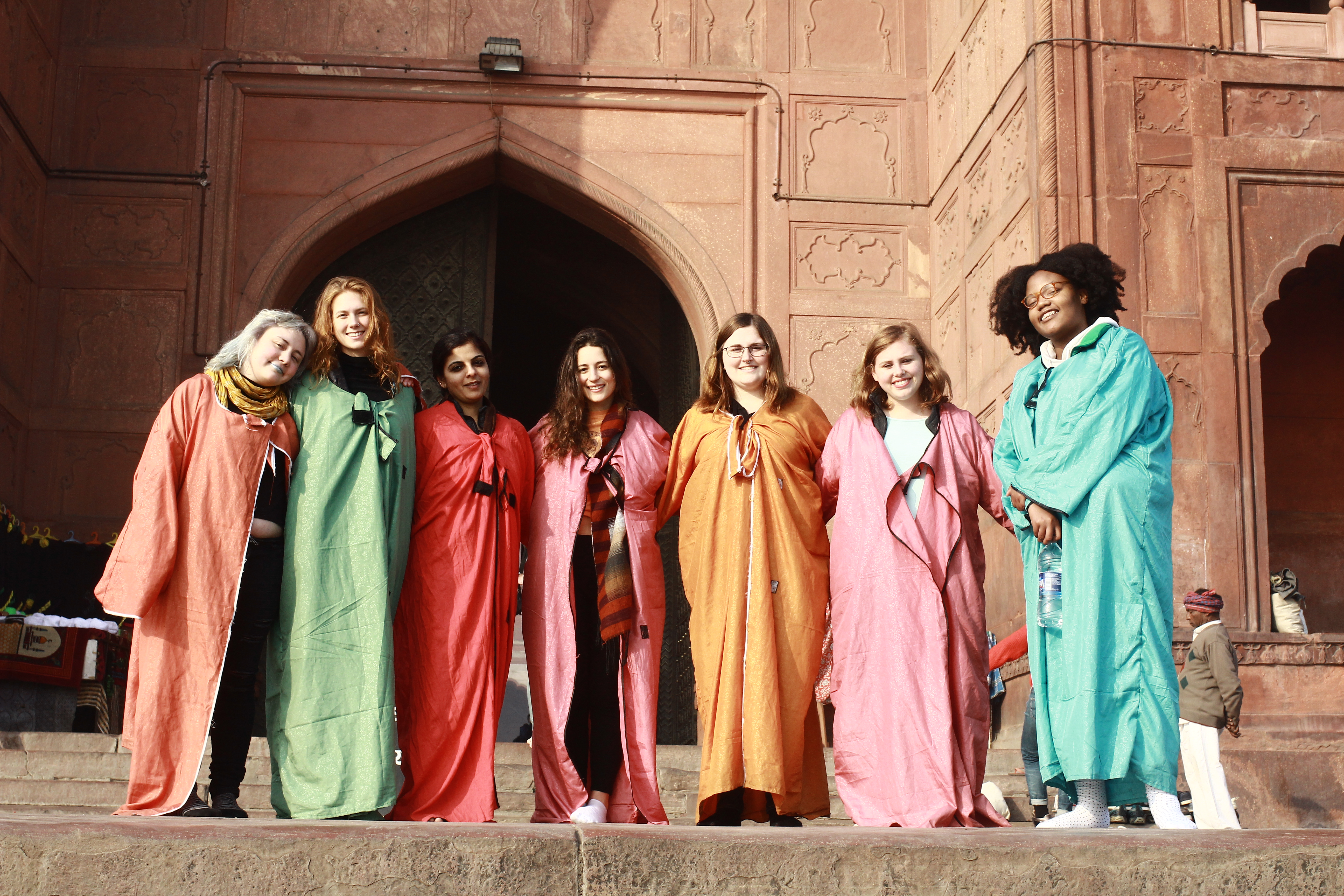Who We Are
At UNC Asheville’s Music Department, the classical co-exists with the contemporary. We explore the many connections and interactions between music and all facets of human life through instruction and performance. Students learn in cutting-edge classrooms at the only university where music pioneer Bob Moog – inventor of the Moog Synthesizer – ever taught. In addition to being dedicated teachers, our faculty are active musicians who enrich Asheville’s thriving music scene and the cultural life of our campus.
The Bachelor of Fine Arts degree program in Jazz and Contemporary Music is intended for students wishing to pursue careers as singers, instrumentalists, composers and arrangers. These students also make up the various jazz, funk, blues, rock, R&B, fusion, and world ensembles as well as a wide range of vocal groups.
What You’ll Learn
All students must pass an instrumental or vocal audition to be accepted into a music degree program. Our highly selective music technology program combines music, engineering, math, computer science, music business, and electronics to teach students how to professionally mix and record music, while our jazz and contemporary music performance program is ideal for those pursuing careers as singers, instrumentalists, composers, and arrangers. Our Bachelor of Arts degree merges music analytical training with history, anthropology, natural sciences, and philosophy to prepare students for a range of careers or graduate studies. The University Singers, one of several student ensembles, have performed at the White House, while many graduates have found dream jobs working with top artists like R.E.M. and Alison Krauss.
Auditions for Prospective Music Majors
All prospective music majors are required to audition. Please visit our Auditions page for upcoming auditions and more information.
Auditions









